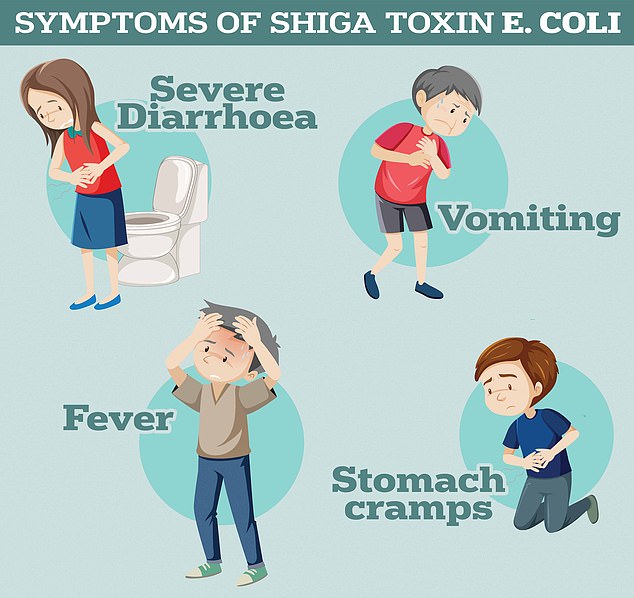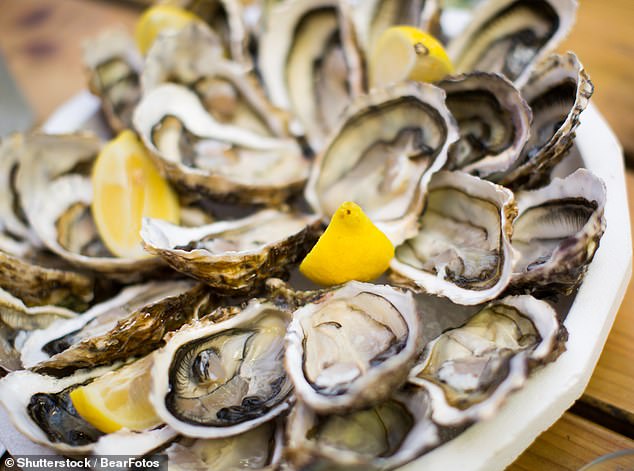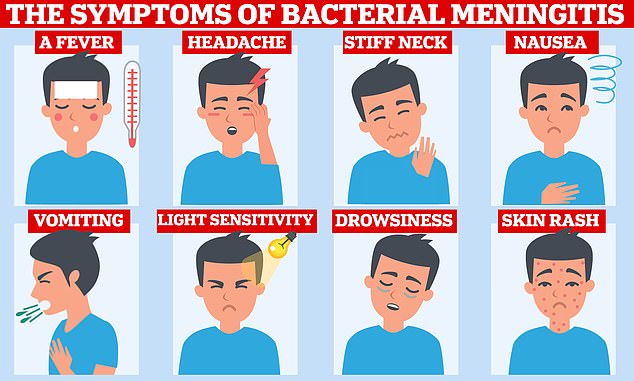A top doctor has revealed the four foods she refuses to eat when dining out due to fears they could be contaminated with life-threatening bacteria.
Dr Christine Adaeze Nwoha, an expert in long term conditions based in Texas, warned that some foods that diners perceive to be ‘fancy’—like oysters and rare meat—could in fact be putting them at risk of deadly food poisoning.
Bugs in contaminated food, like E.coli, salmonella and norovirus, kill over 420,000 people every year across the world.
Meanwhile, around 2.4million people in the UK suffer foodborne illness every year, according to the Food Standards Agency (FSA).
While any produce can cause food poisoning, some foods such as animal products and salad leaves, are riskier than others.
Now, in an Instagram video that has so far garnered nearly half a million views, Dr Adaeze Nwoha has issued fresh warnings about little-known high-risk foods, like lemon and lime slices, seafood and even ice cubes.
Citrus slices, for instance, are often cut from fruit that is ‘kicked around the floor, picked up and put back into the bin and then served to you’, said the medic, who claimed to have seen countless cases of food poisoning in her hospital patients.
Meanwhile, ice machines are often hard to clean, she said, making them ‘filthy, gunky and nasty.’

The health and disease expert said she never has iced drinks at a restaurant because she is suspicious of dirty ice-makers that could be harboring bacteria

Symptoms of Shiga toxin-producing E.coli include severe diarrhoea and vomiting, according to the UK Health Security Agency
This means that even when water has gone through the freezing process, some bacteria is strong enough to survive.
Contamination can also occur when ice, or ice making machines, are touched by staff who have not washed their hands thoroughly after using the bathroom.
Dr Nwoha’s recommendations come as the UK faces a worrying surge in a highly toxic form of E.coli that has been linked to colon cancer.
Rates of the deadly strain, called called non-0157 shiga toxin-producing E.coli, or STEC, rose almost 10-fold in just seven years, latest figures show.
British researchers believe that the strain may be linked to rising rates of bowel cancer among young people, after studies found traces of colibactin, a cancer-linked toxin which is produced by certain STEC strains, lurking in tumours from patients under 40.
The pathogen is mostly found in ready-to-eat foods, like chopped fruit and salad, as well as undercooked meat.
Last year, more than 280 people were struck down by STEC in an outbreak linked to ready meal sandwiches containing contaminated salad leaves grown in the UK.
Dr Nwoha said she avoids eating beef, especially rare, or even-medium rare burgers that are not cooked all the way through.

Dr Nwoha also advised against eating the pre-cut fruit that often comes in your drink, amid fears that it could be contaminated with life-threatening E.coli
‘I don’t eat beef but I have had people in my parties who do,’ she said.
‘This is not the time to be ordering rare. There is a difference between a steak and a burger.
‘A steak can have the bacteria like E. coli and salmonella on the outside, and then when you cook it and sear it, you kill that bacteria—so when you cut into it and it’s rare on the inside, that’s fine.
However, according to Dr Nwoha, because a burger is made from minced beef, the bacteria is not restricted to the outside surface of the patty.
‘It may be cooked on the outside, but you still have meat on the inside that was exposed to bacteria at some point that’s not being cooked because you wanted it rare.
‘Therefore, you’ve got bacteria that is potentially being left alive.
‘If someone brings this to your table, make them take it back and cook it because it can make you sick.’
Finally, Dr Nwoha urged her followers to avoid eating raw oysters, after her friend was hospitalised for months after eating a contaminated oyster.
This can cause a life-threatening infection called Vibrio vulnificus which thrives in warm costal water.

Many people enjoy eating raw oysters but eating raw seafood can put you at risk of life-threatening vibriosis as bacteria that thrive in warm costal waters nestle inside the produce. According to the centre for disease control, an oyster that contains harmful bacteria will not look, taste or smell different to a normal oyster

Bacterial meningitis, which requires urgent hospital treatment, affects the membranes in the spinal cord and brain
This infection can be particularly dangerous for pregnant women and people with weakened immune systems.
In cases where patients ingest the bacteria, and the pathogen is not broken down in the stomach, the bacteria can reach the small intestine.
Here, it quickly multiplies and attacks the surrounding tissue which can eventually trigger sepsis and even death.
People who become infected with the bacteria will show symptoms within hours of ingesting the contaminated food, including nausea, diarrhoea, abdominal pain and vomiting.
Dr Nwoha said that oysters can also harbour norovirus and cause life-threatening viruses including encephalitis and meningitis—bacterial viruses that affect the brain and spinal cord.
‘You need to be avoiding raw oysters if you’re pregnant or immunocompromised but keep in mind they can affect healthy individuals as well,’ she said.












